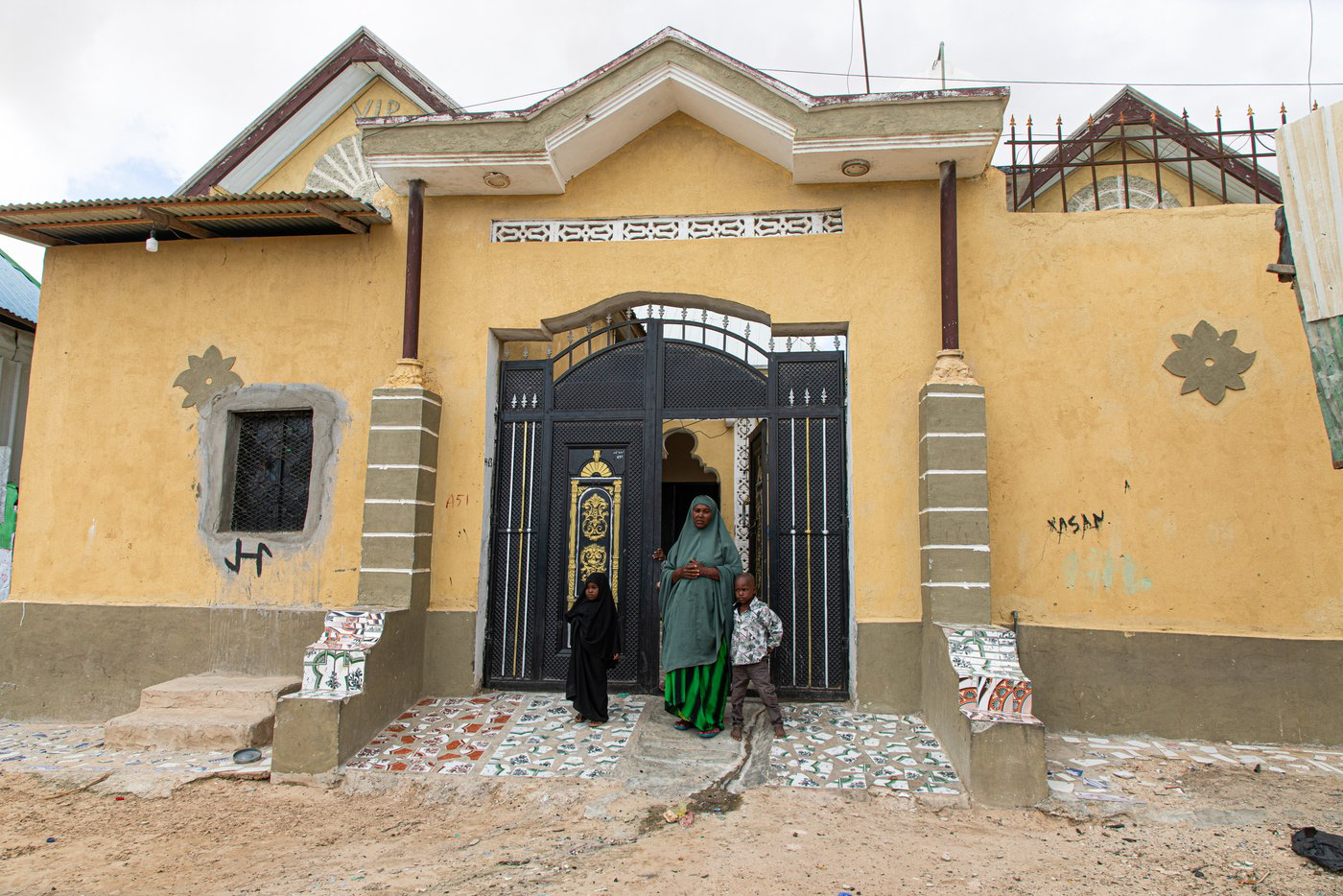“We lost everything to the drought,” Muslima recalls. “Our animals died, and we could no longer survive in the village. Leaving was our only option.”
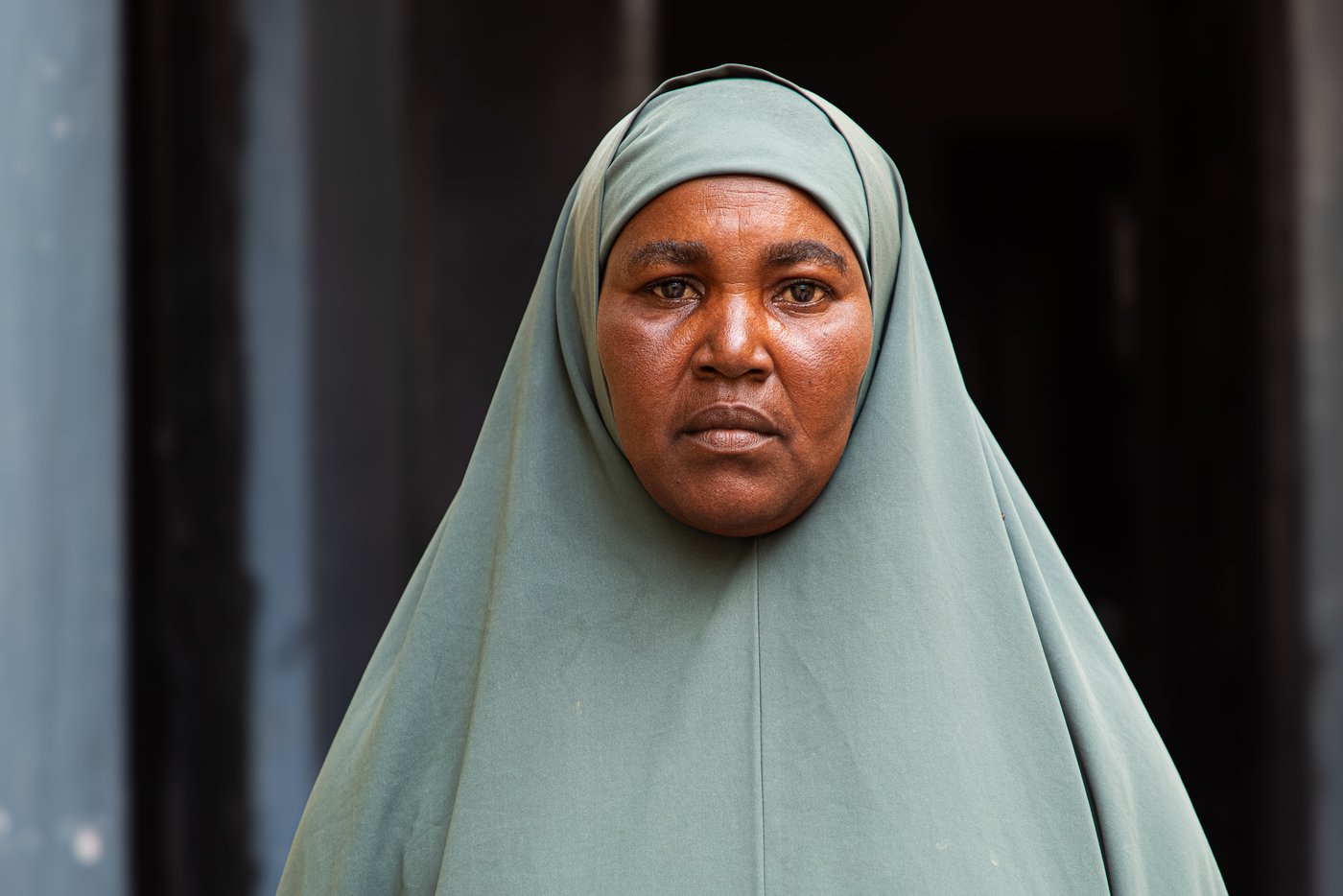
Daily fear of eviction
Seeking safety, Muslima, her husband, and their five children arrived at Sadeh Burod displacement camp in Afgoye. But instead of finding safety, and stability they faced new hardships.
Muslima’s husband started carrying out casual jobs in Afgoye town, but the little he earned barely covered food. Rent was impossible. Their “home” was a fragile makeshift structure of wood, cartons, and plastic sheeting – offering little protection from the scorching sun, rain, floods, or even fire.
“Life in that shelter was not a life,” Muslima explains. “When it rained, everything would get soaked. When the wind blew, the walls would fall. We lived in constant fear.”
The family was also repeatedly evicted, often without notice.
“We were always suffering from forced evictions. Our lives were unstable, and every day brought new struggles,” continues Muslima.
One morning, while Muslima tending to her usual routine, the landlord ordered them to vacate immediately unless they could pay rent. “It was a shock. I didn’t know where to go with my children. Everything was too expensive.”
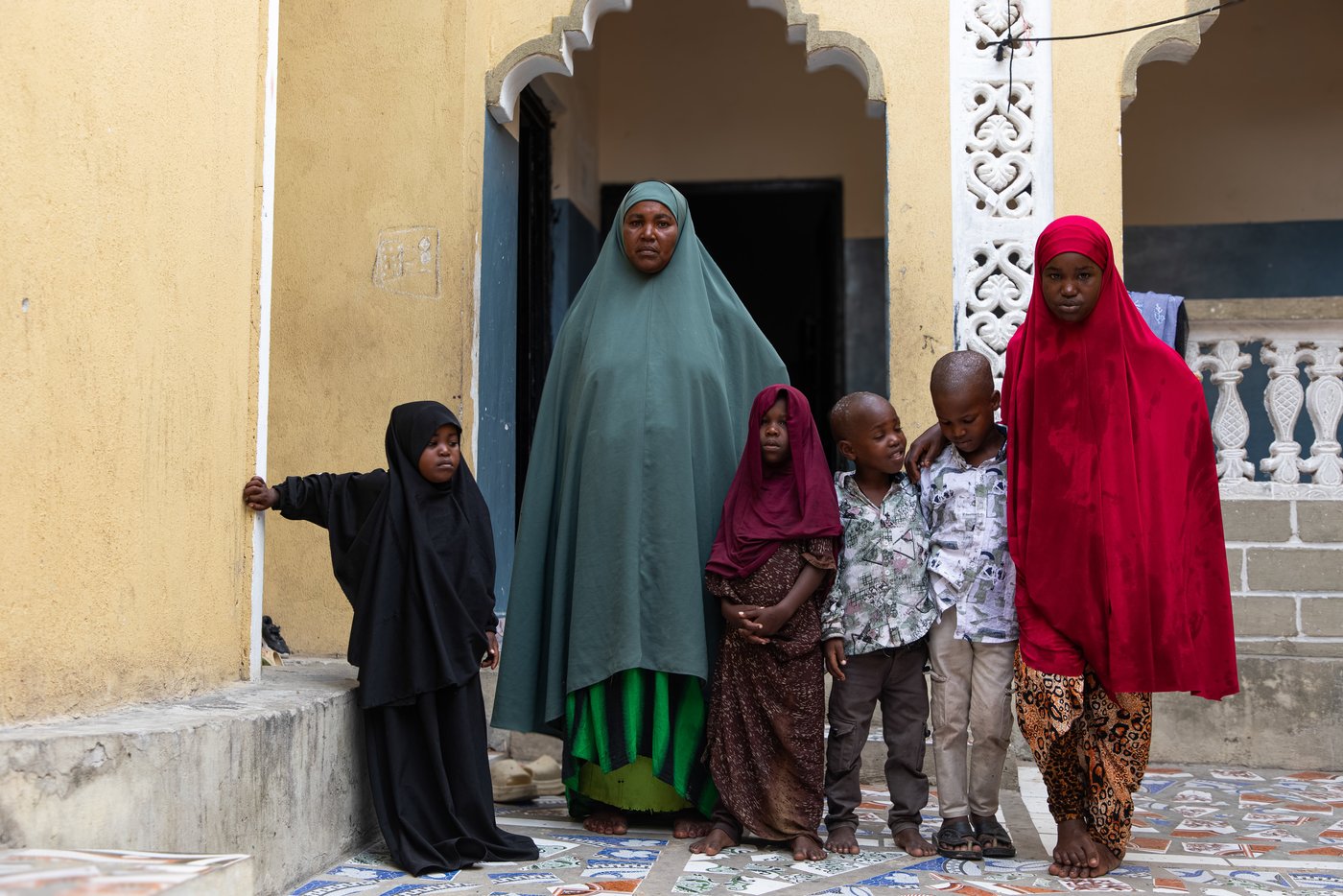
The eviction left Muslima desperate, searching from one corner of the camp to another, looking for affordable shelter. But most places were far beyond her family’s means.
Recognising the increasing occurrence of forced evictions, the Norwegian Refugee Council (NRC) stepped in, with field teams monitoring displacement cases and working to mediate between landlords and tenants. Through forums and dialogue sessions, they advocated for displaced families’ rights and negotiated agreements for notice periods, preventing sudden evictions.
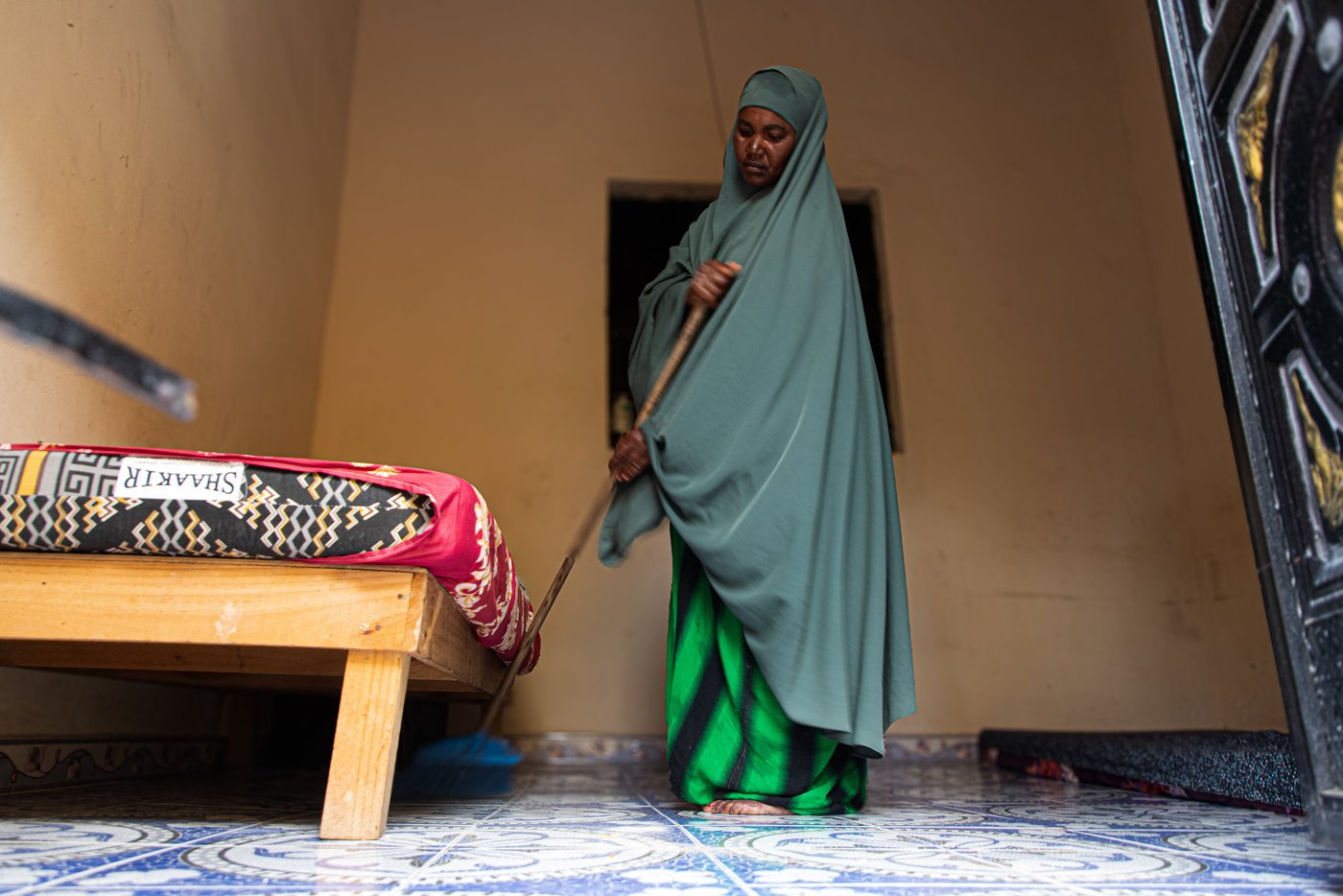
A new home and a fresh start
“Forced evictions strip families of dignity and safety,” says Hawa Mohamud, who works with the information, counselling and legal assistance (ICLA) programme. “Our work is to ensure that no one is left homeless overnight without due process.”
Today, Muslima’s life has changed. She is among 105 displacement-affected families chosen to receive rental support through an EU-funded project helping communities in the Shabelle River Basin adapt to climate change and find durable housing solutions. The project is implemented by NRC, Concern Worldwide, and SHACDO under the NEGAAD programme.
Through this programme, she received:
- A secure rental home in Afgoye district for 18 months, free from the threat of eviction
- A USD 55 monthly food allowance for five months to support her family’s nutrition
- A USD 500 small business grant, which helped her start a business and achieve independence
- Basic business training to help her understand how to run her business
After years of repeated evictions and instability in displacement camps, Muslima and her family finally live in a proper house. With rent support, a monthly food allowance, and a business grant that helped her start a business, Muslima’s life has shifted from uncertainty to stability.
Living in a permanent home means she no longer fears sudden eviction or losing her few possessions overnight. Her children can sleep safely, free from the constant threats of fire or landlords demanding rent.
“Now I can focus on my children’s education and starting my small business,” she says with relief. For Muslima, secure housing is more than a shelter for her – it is the beginning of independence and hope.
“I no longer worry about displacement,” she adds. “We now have a proper house, protected from the sun, fires, and other dangers. My rent is being paid, I get food support, and I am waiting to start my business. This will help me stand on my own feet again.”
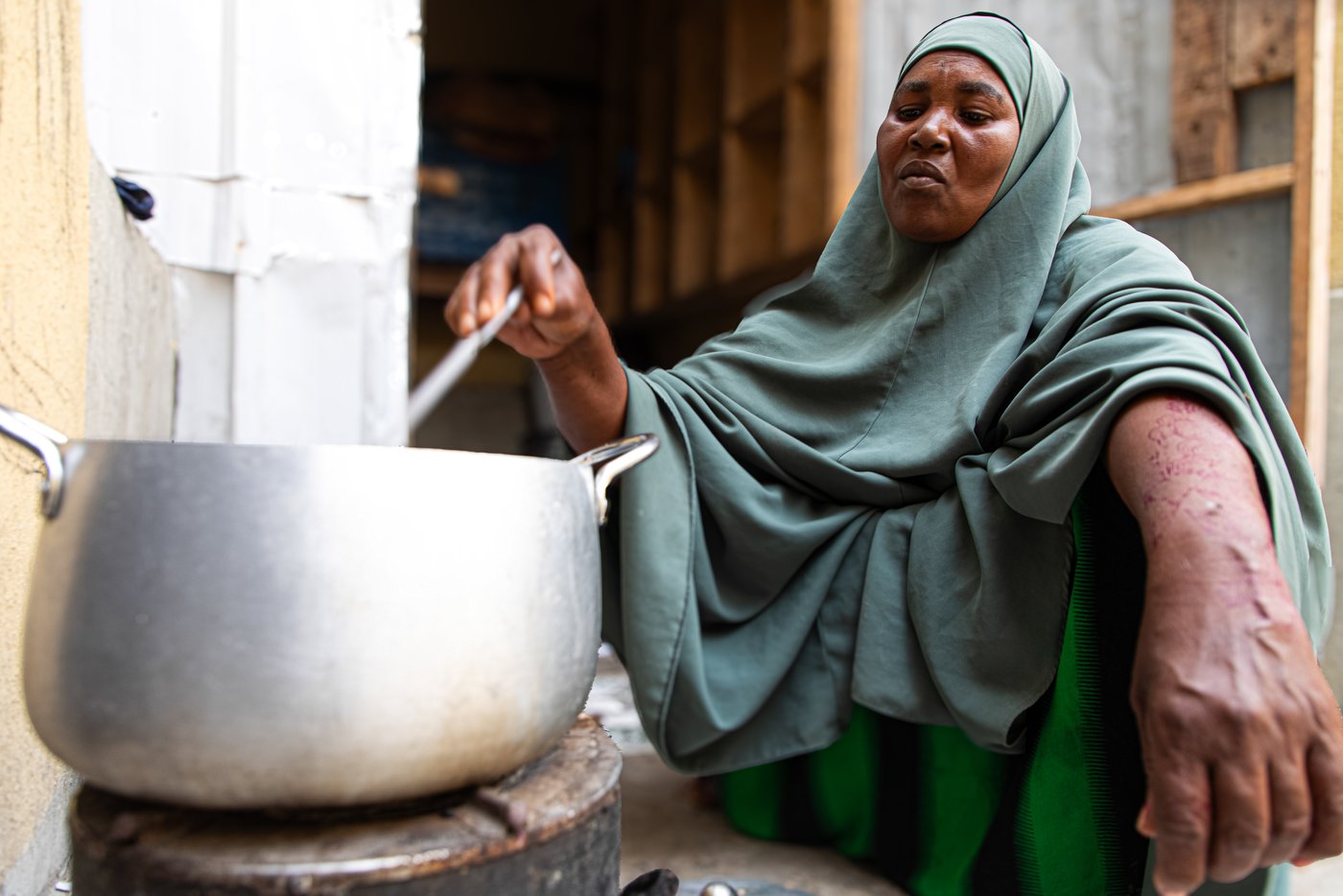
Forced evictions: a widespread challenge
Forced evictions remain one of the most pressing protection challenges for Somalia’s internally displaced population. Families living in informal settlements often pay rent to private landowners, leaving them vulnerable to sudden rent hikes and eviction threats. Without support, families like Muslima’s could easily be left without a home.
Despite losing her home, her livelihood, and her sense of security multiple times, Muslima has not given up hope. With NRC’s support, she is now looking forward to starting her own small business, which will give her financial independence and allow her to provide for her children.
“My dream is to see my children grow up in a safe place, with education and opportunities,” she says. “I don’t want them to go through what I have been through.”
Her journey from eviction to stability reflects the critical importance of continued humanitarian support in Somalia – not just for survival, but for giving families a chance to thrive.
Somalia is one of the world’s most neglected displacement crises. It may not make the headlines, but the needs are urgent. Share this story and help shine a light on the world's neglected displacement crises. Your voice matters when others remain silent.


